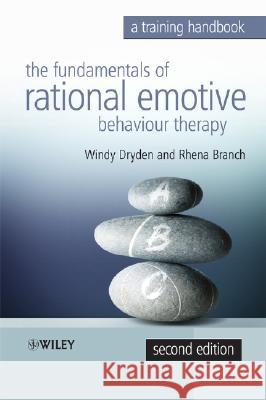The Fundamentals of Rational Emotive Behaviour Therapy: A Training Handbook » książka
topmenu
The Fundamentals of Rational Emotive Behaviour Therapy: A Training Handbook
ISBN-13: 9780470319314 / Angielski / Miękka / 2008 / 248 str.
The Fundamentals of Rational Emotive Behaviour Therapy: A Training Handbook
ISBN-13: 9780470319314 / Angielski / Miękka / 2008 / 248 str.
cena 206,13 zł
(netto: 196,31 VAT: 5%)
Najniższa cena z 30 dni: 205,31 zł
(netto: 196,31 VAT: 5%)
Najniższa cena z 30 dni: 205,31 zł
Termin realizacji zamówienia:
ok. 22 dni roboczych.
ok. 22 dni roboczych.
Darmowa dostawa!
- A complete introduction to REBT, an approach to CBT which argues that at the core of emotional disturbance lies a set of irrational beliefs that people hold about themselves and others
- Essential for counsellors who are beginning to use REBT with clients - recreates the 'feel'of a training course and alerts trainees to difficulties they may experience when using REBT in practice
- Covers all the basic theoretical and practical information that trainees need to begin using REBT, with special attention paid to disputing irrational beliefs and helping clients set goals
- Windy Dryden is the world's best-known and most prolific name in REBT after its founder (the late Albert Ellis), and there is no direct competition to this unique handbook











